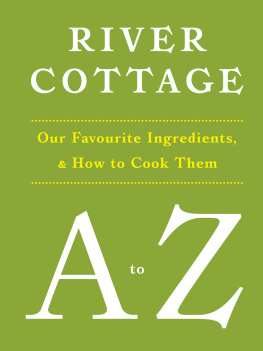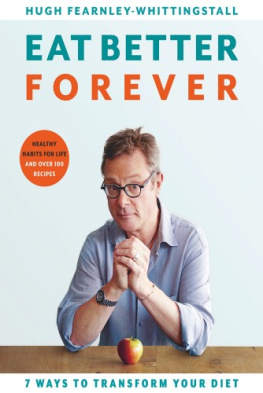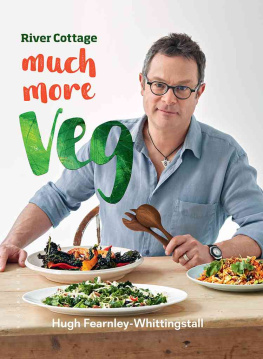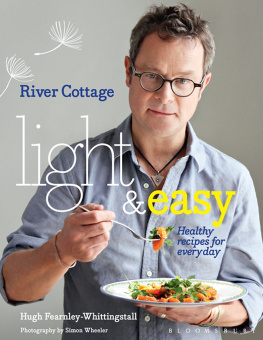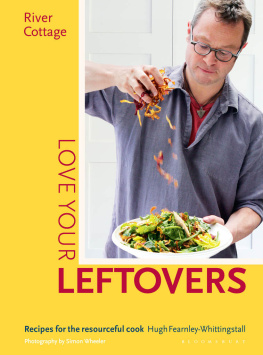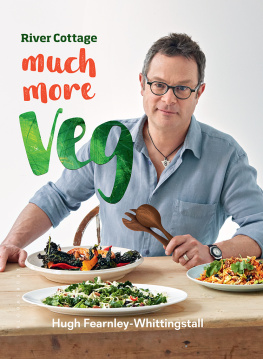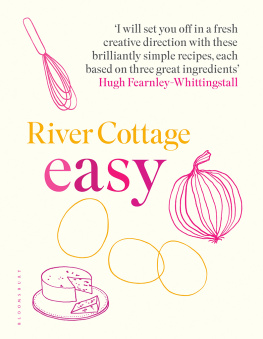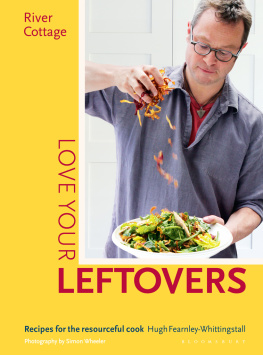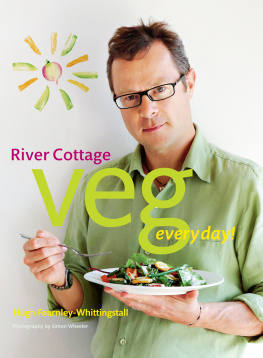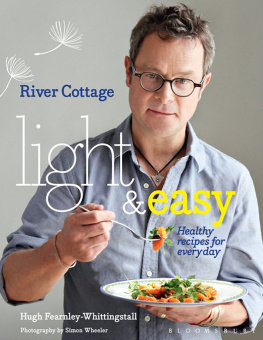Hugh Fearnley-Whittingstall - River Cottage Every Day
Here you can read online Hugh Fearnley-Whittingstall - River Cottage Every Day full text of the book (entire story) in english for free. Download pdf and epub, get meaning, cover and reviews about this ebook. year: 2011, publisher: Ten Speed Press, genre: Home and family. Description of the work, (preface) as well as reviews are available. Best literature library LitArk.com created for fans of good reading and offers a wide selection of genres:
Romance novel
Science fiction
Adventure
Detective
Science
History
Home and family
Prose
Art
Politics
Computer
Non-fiction
Religion
Business
Children
Humor
Choose a favorite category and find really read worthwhile books. Enjoy immersion in the world of imagination, feel the emotions of the characters or learn something new for yourself, make an fascinating discovery.

- Book:River Cottage Every Day
- Author:
- Publisher:Ten Speed Press
- Genre:
- Year:2011
- Rating:4 / 5
- Favourites:Add to favourites
- Your mark:
- 80
- 1
- 2
- 3
- 4
- 5
River Cottage Every Day: summary, description and annotation
We offer to read an annotation, description, summary or preface (depends on what the author of the book "River Cottage Every Day" wrote himself). If you haven't found the necessary information about the book — write in the comments, we will try to find it.
Hugh Fearnley-Whittingstall: author's other books
Who wrote River Cottage Every Day? Find out the surname, the name of the author of the book and a list of all author's works by series.
River Cottage Every Day — read online for free the complete book (whole text) full work
Below is the text of the book, divided by pages. System saving the place of the last page read, allows you to conveniently read the book "River Cottage Every Day" online for free, without having to search again every time where you left off. Put a bookmark, and you can go to the page where you finished reading at any time.
Font size:
Interval:
Bookmark:
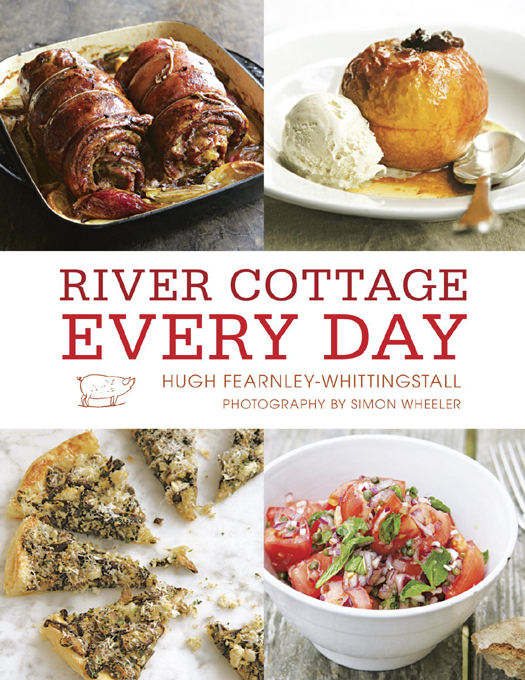
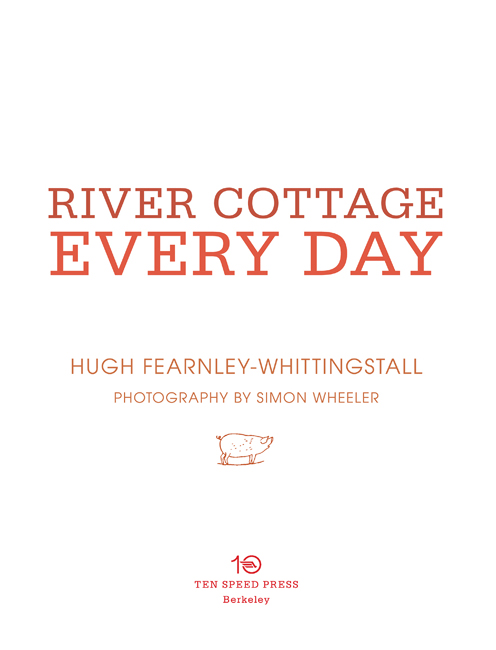
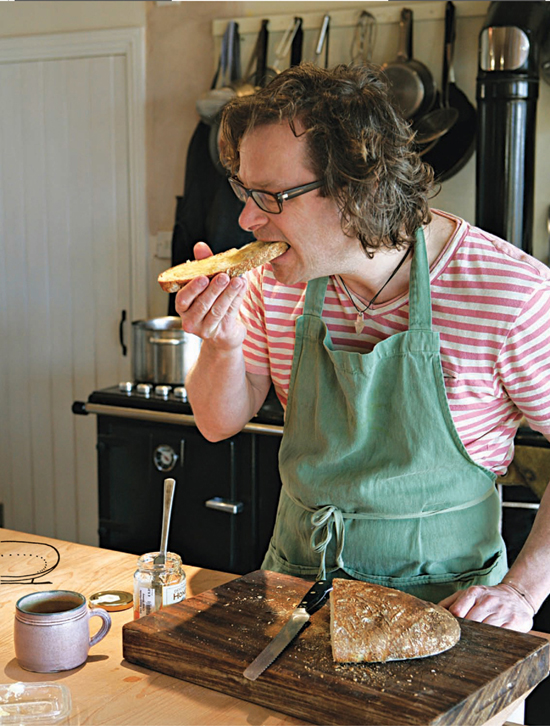
Text copyright 2009 by Hugh Fearnley-Whittingstall
Photography copyright 2009 by Simon Wheeler
Additional photography copyright 2009 by Marie Derme ()
Illustrations copyright 2009 by Mariko Jesse
All rights reserved.
Published in the United States by Ten Speed Press, an imprint of the Crown Publishing Group, a division of Random House, Inc., New York.
www.crownpublishing.com
www.tenspeed.com
Ten Speed Press and the Ten Speed Press colophon are registered trademarks of Random House, Inc.
Originally published in slightly different form in Great Britain by Bloomsbury Publishing Plc, London, in 2009
Library of Congress Cataloging-in-Publication Data
Fearnley-Whittingstall, Hugh.
River Cottage every day / Hugh Fearnley-Whittingstall; photography by Simon Wheeler.
p. cm.
Includes index.
Summary: A collection of more than 180 appealing everyday recipes from the bestselling author of the River Cottage seriesProvided by publisher.
1. Cooking (Natural foods) 2. Cooking, English. 3. River Cottage (Television program) I. Title.
TX741.F426 2011
641.5636dc22
2010046949
eISBN: 978-1-60774-099-5
Project editor: Janet Illsley
Copy editor: Jane Middleton
Cover design: Chloe Rawlins
Photography: Simon Wheeler
Illustrations: Mariko Jesse (www.marikojesse.com)
First U.S. Edition
v3.1
For Marie, for every day
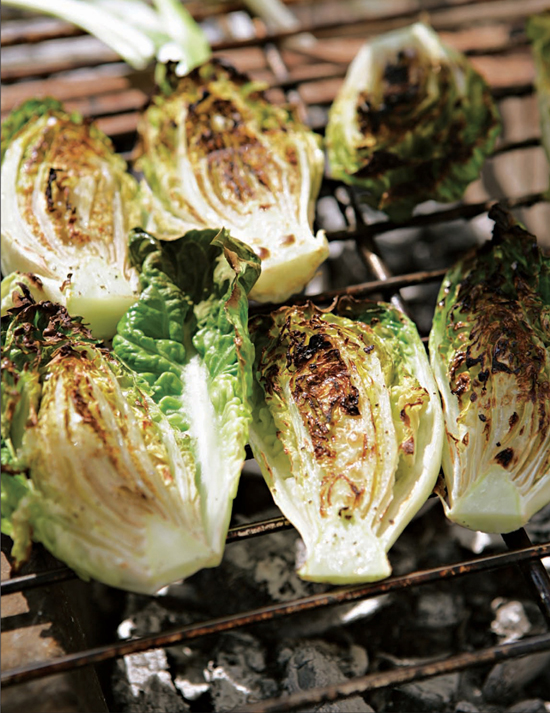
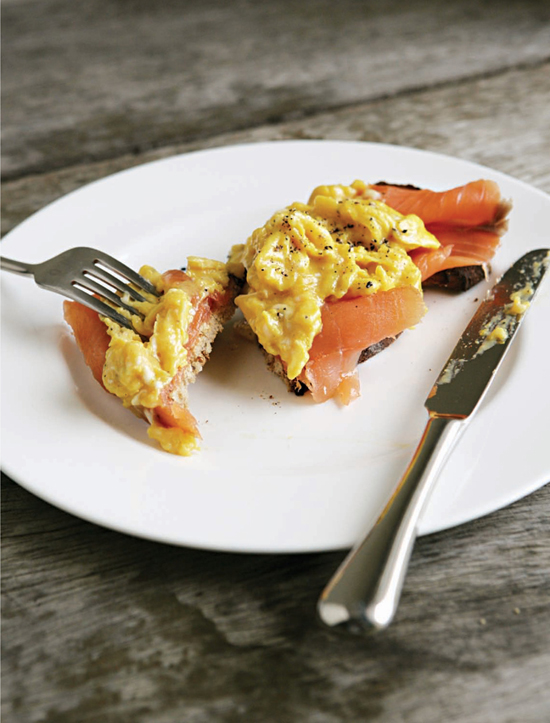




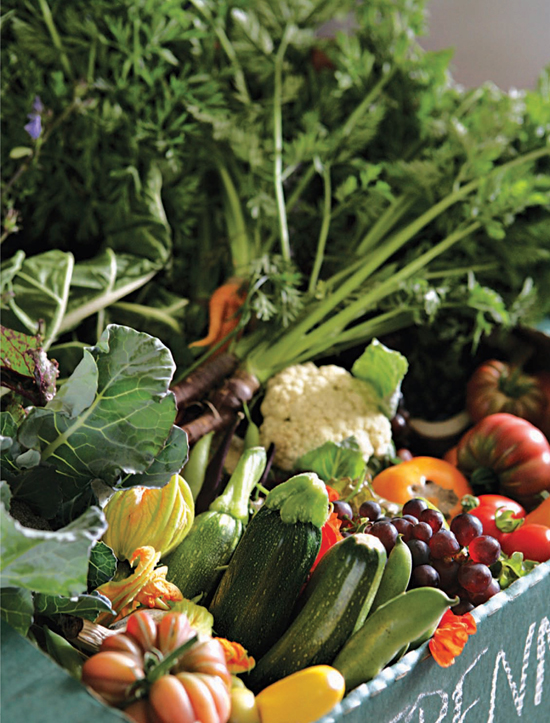

Good food prepared from fresh ingredients ideally seasonal and locally sourced can and should be at the heart of every happy, healthy family kitchen. Yes, I genuinely believe that cooking from scratch (or with your own leftovers) is a possibility for everybody, pretty much every day. I realize, when so many of us are always in a hurry, and when easy access to fresh, local ingredients is not a universal privilege, that thats a controversial position. But I stand by my conviction, and Ive written this book to show you how I think it can be done.
It often seems that there is a divide between people when it comes to food. A crude way of describing the divide is that we fall into two broad categories: those who care about food and those who dont. I have been accused at times of writing only for the first group or, to put it another way, of preaching largely to the converted. I can see why some would say that. I propose a degree of involvement with food knowing and caring where it comes from, perhaps even growing some of it, or gathering some from wild places that to many seems patently absurd. To some, I am that weirdo who eats anything. Of course, to me, eating nettles, rabbits, and such makes perfect sense. Its completely normal. But it has been quite a journey for me to discover and embrace that kind of normality.
As a child, I was one of the fussiest eaters you can imagine. If it didnt come out of a Birds Eye package and get fried up and served with ketchup, then I really wasnt that interested. So I have no qualms imagining that others can make journeys with food even journeys they havent yet imagined possible for themselves. In the twenty-odd years since I first became involved in the food business, I have seen entrenched attitudes to food, on the part of both stubborn individuals and monolithic institutions, shift massively. Ive witnessed burgeoning excitement, enlightenment even, as more and more people get involved in cooking real food from fresh ingredients. Ive seen peoples lives and family dynamics transformed by the discovery of good food and by a change of approach to acquiring and preparing food.
If you have watched any of the television programs Ive made over the last few years, youll know Ive spent a lot of time trying to persuade various people to change their way of shopping and cooking and to become more engaged with real fresh food. For the most part, I feel Ive succeeded, at least to some degree. The individuals and families Ive been growing and cooking food with are now, at the very least, a little more skeptical of frozen dinners, factory-farmed produce, and anonymous, pre-packaged fare. Most of them have developed a determination to cook more with fresh ingredients and to make food a bigger part of their interaction with family and friends. But perhaps the most important thing is that all of them, I think its safe to say, have had a good time. Theyve discovered how to cook ingredients theyd shied away from and how to get more out of foods they thought boring, and realized that some truly delicious meals can be thrown together from scratch in very little time at all.
The food media can only do so much to engage public interest in these issues. Luckily there are all kinds of other catalysts that bring about a change for good in peoples relationship with food, and many of them cant be marshaled or predicted: a meal at a friends house; a great dish encountered on holiday; a child coming home with something theyve cooked at school; an unexpected gift of a fruit bush or vegetable plant. These can all kick-start a new and exciting future with food one that turns out to be more accessible than you might have imagined. Buying your food becomes less of a chore, more of a pleasure, an adventure even, as you steer your grocery cart away from the frozen-dinner aisle and over toward fresh produce. Or perhaps start heading for the nearest farmers market rather than the supermarket. Suddenly it seems that your friends have discovered cooking too though perhaps its just that you are hearing the food-related content of their chatter when previously you were filtering it out.
Thats why I think the us and them view of our food culture is unduly simplistic. I see not two firmly entrenched camps who can never meet but rather a continuum, with those who are already thoroughly involved with the story of their food at one end and those who are entirely dependent on anonymous, industrially produced food, the origins of which are largely unknown to them, at the other. Everyone, and every household, has a place on this continuum. I see the main challenge of my work as helping people move along it in the direction of more engagement with real fresh food, away from dependence on the industrial food machine. I believe its a worthwhile enterprise for one simple reason: Im convinced that a greater engagement with the source of their food makes people happier.
Font size:
Interval:
Bookmark:
Similar books «River Cottage Every Day»
Look at similar books to River Cottage Every Day. We have selected literature similar in name and meaning in the hope of providing readers with more options to find new, interesting, not yet read works.
Discussion, reviews of the book River Cottage Every Day and just readers' own opinions. Leave your comments, write what you think about the work, its meaning or the main characters. Specify what exactly you liked and what you didn't like, and why you think so.

